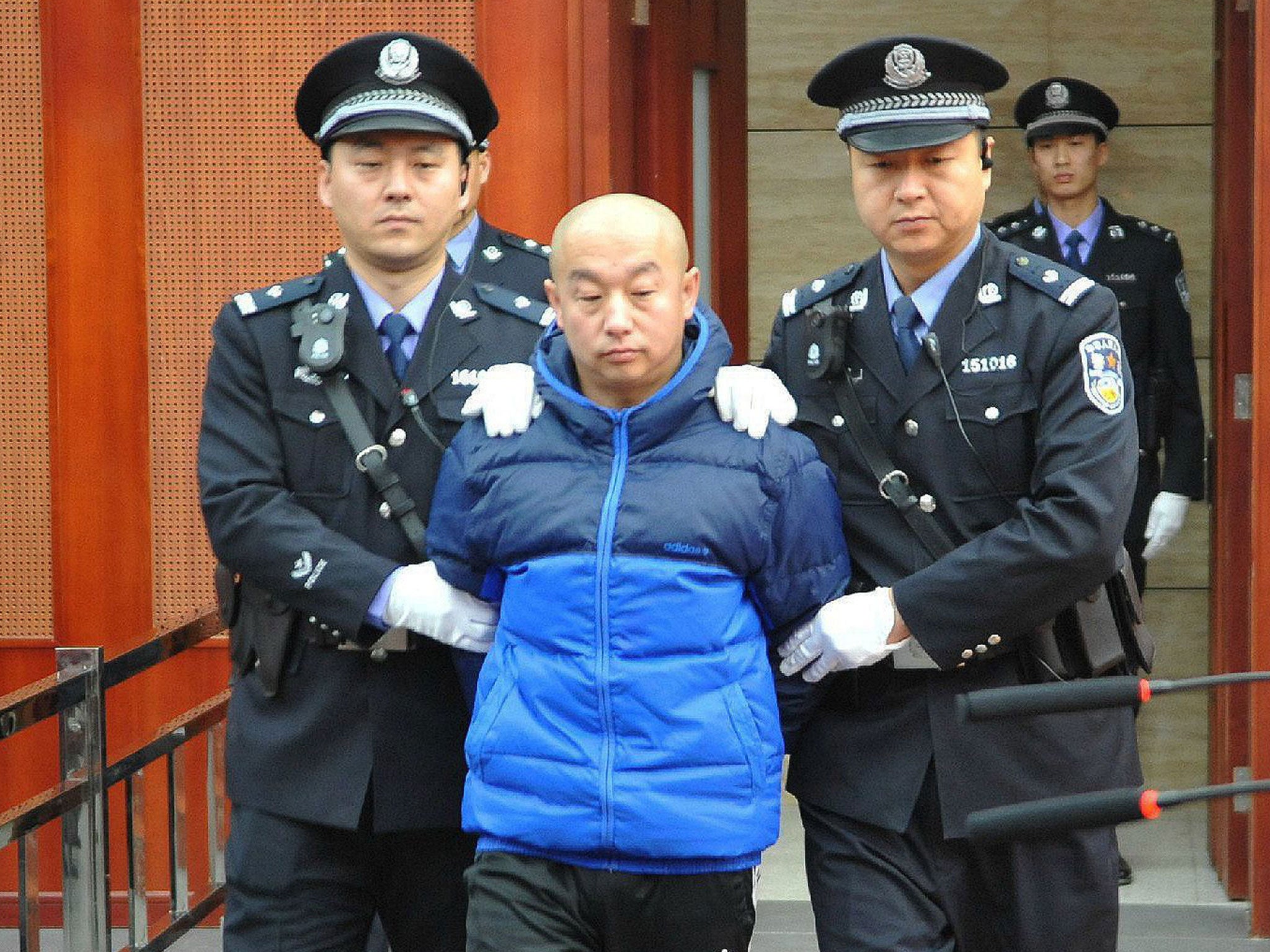Chinese police to film interrogations as government promises end to torture following miscarriages of justice
Public outcry after a series of miscarriages of justice prompted the move

Your support helps us to tell the story
From reproductive rights to climate change to Big Tech, The Independent is on the ground when the story is developing. Whether it's investigating the financials of Elon Musk's pro-Trump PAC or producing our latest documentary, 'The A Word', which shines a light on the American women fighting for reproductive rights, we know how important it is to parse out the facts from the messaging.
At such a critical moment in US history, we need reporters on the ground. Your donation allows us to keep sending journalists to speak to both sides of the story.
The Independent is trusted by Americans across the entire political spectrum. And unlike many other quality news outlets, we choose not to lock Americans out of our reporting and analysis with paywalls. We believe quality journalism should be available to everyone, paid for by those who can afford it.
Your support makes all the difference.The announcement of major new reforms of the police force in China has sparked hopes that police torture and corruption are to be curbed and further miscarriages of justice avoided.
Public support for the police and judiciary system is at rock bottom here after a series of high-profile murder convictions based on confessions allegedly given under duress have been overturned.
A hundred new measures will be rolled out from now until 2020, with areas covering law enforcement, domestic security, administration and personnel. Top priority will be the increased accountability of officers.
The Ministry of Public Security referred to the plan as “a reform aimed at tackling root problems that have been accumulated over the years”.
A ministry official added: “Law enforcement is not strict, not standardised, not just. The trading of power for money and bending the law for personal gain seriously undermines police credibility.”
One crucial new rule will require all police interrogations to be filmed. It was announced days before the plan was announced that Nian Bin, a man who spent eight years on death row before being acquitted of a double murder, will receive ¥1.14m (£120,000) in compensation from the state.
In 2008 Mr Nian, a former food stall owner, was found guilty of killing 10-year-old Yu Pan and eight-year-old Yu Han in the village of Aoqian in Fujian province in 2006. He said he confessed after being tortured by the police, and that officers faked reports and concealed evidence.
Also this month, a man named Zhao Zhihong was convicted of the rape and murder of a woman in the city of Shijiazhuang in Inner Mongolia in 1994, crimes for which another man, Nie Shubin, was executed in 1996. Mr Nie, then 21, had reported finding the victim’s body and confessed to the murder under police torture. He was posthumously cleared last December.
Both cases caused a huge amount of public scrutiny to be focused on the police.
The reforms are part of President Xi Jinping’s crackdown on corruption, which according to the Central Commission for Discipline Inspection (CCDI) saw more than 70,000 officials punished for graft last year. Although the reforms are likely to have been introduced as much for publicity reasons as for the need for change, human rights groups have welcomed them.
“The Chinese government is genuinely trying to reform many of the problems,” William Nee, a China researcher for Amnesty International, told The Independent. “They have been pretty candid about some of these problems. They want to... ensure fairness and make the legal system more accountable. It’s bold.”
With 22 provinces and a population of 1.3 billion, the government has struggled recently to ensure its policies are implemented uniformly.
The reforms will also see the introduction of a national population database, raising concerns about possible abuse. “There’s big potential for misuse,” said Mr Nee. “We’ve already seen Chinese ID card information abused by police... to track petitioners and detain them unlawfully.”
The reputation of the police force took a further hit this month when Wang Yuanping, the east Shenzhen precinct police chief, was sacked for abusing his position by feasting on a giant salamander, an endangered animal.
Mr Wang ordered officers to guard the restaurant door and rough up local journalists who tried to take photos.
Join our commenting forum
Join thought-provoking conversations, follow other Independent readers and see their replies
Comments